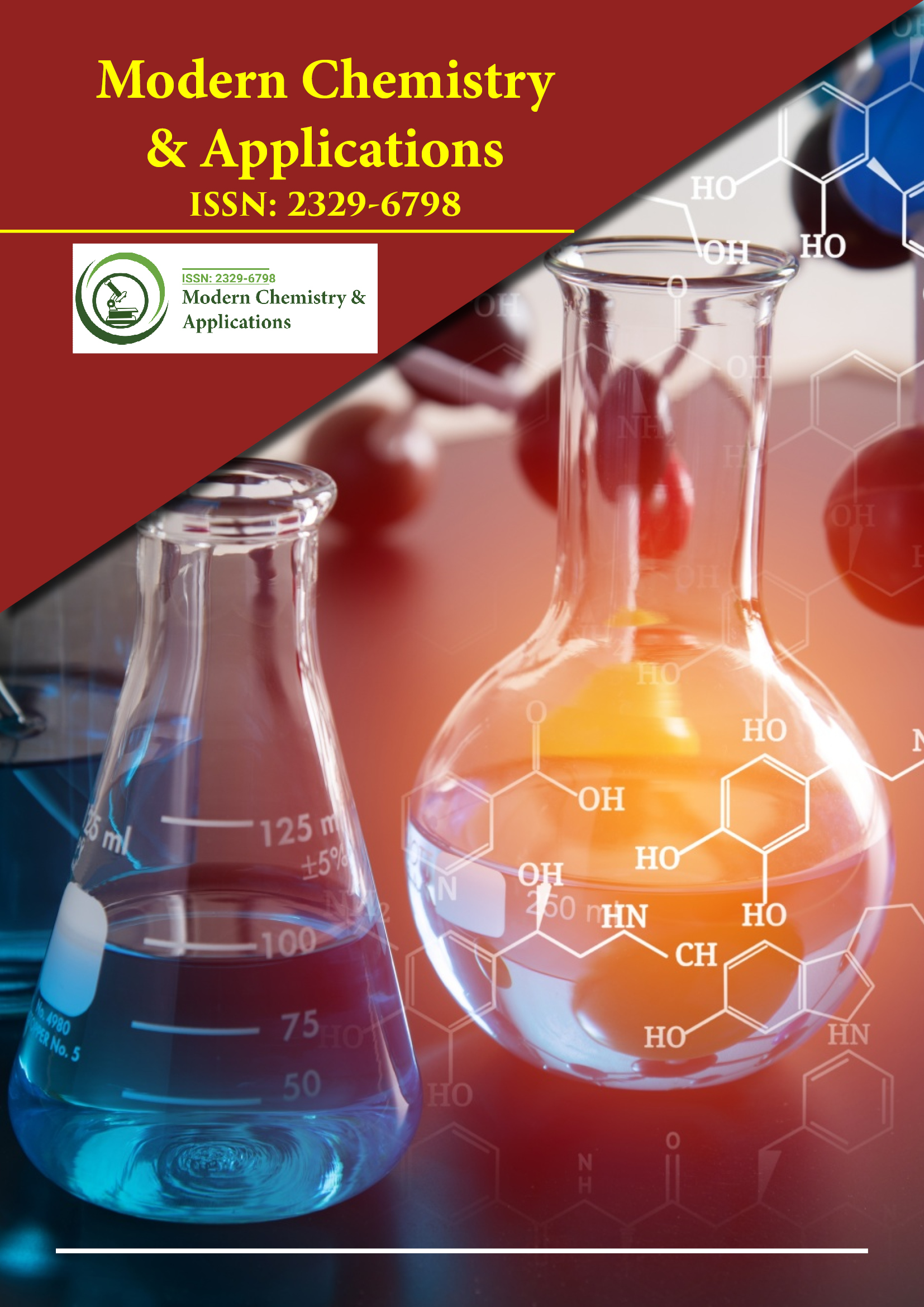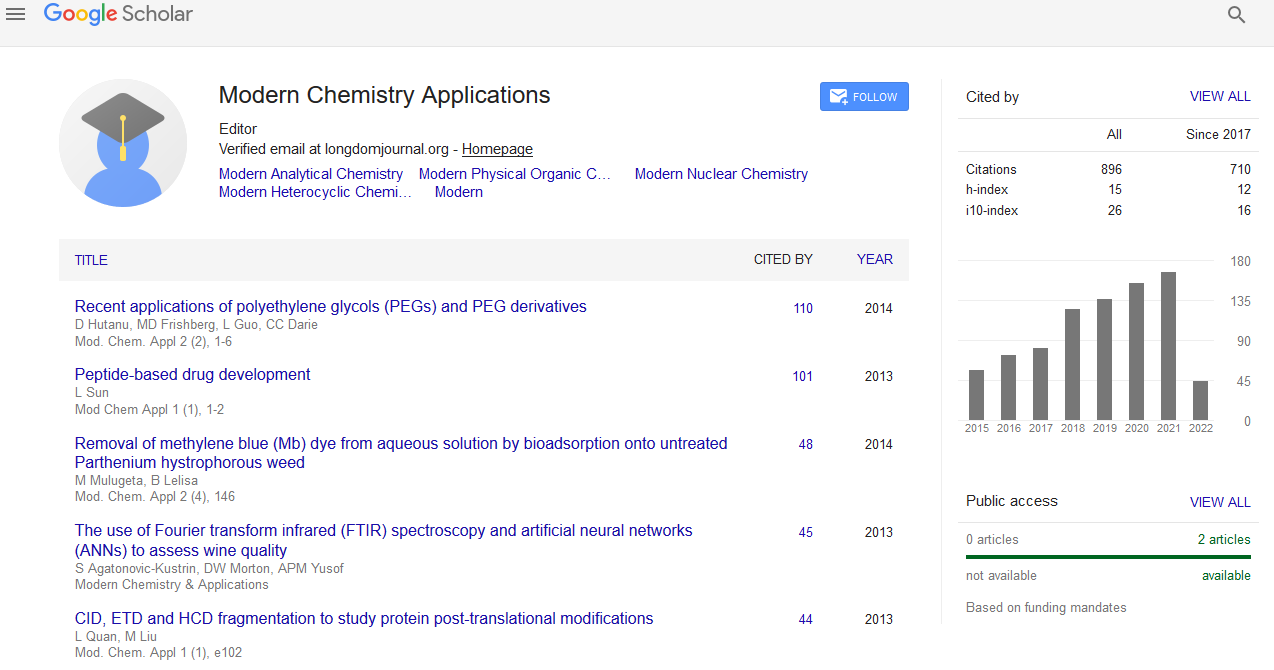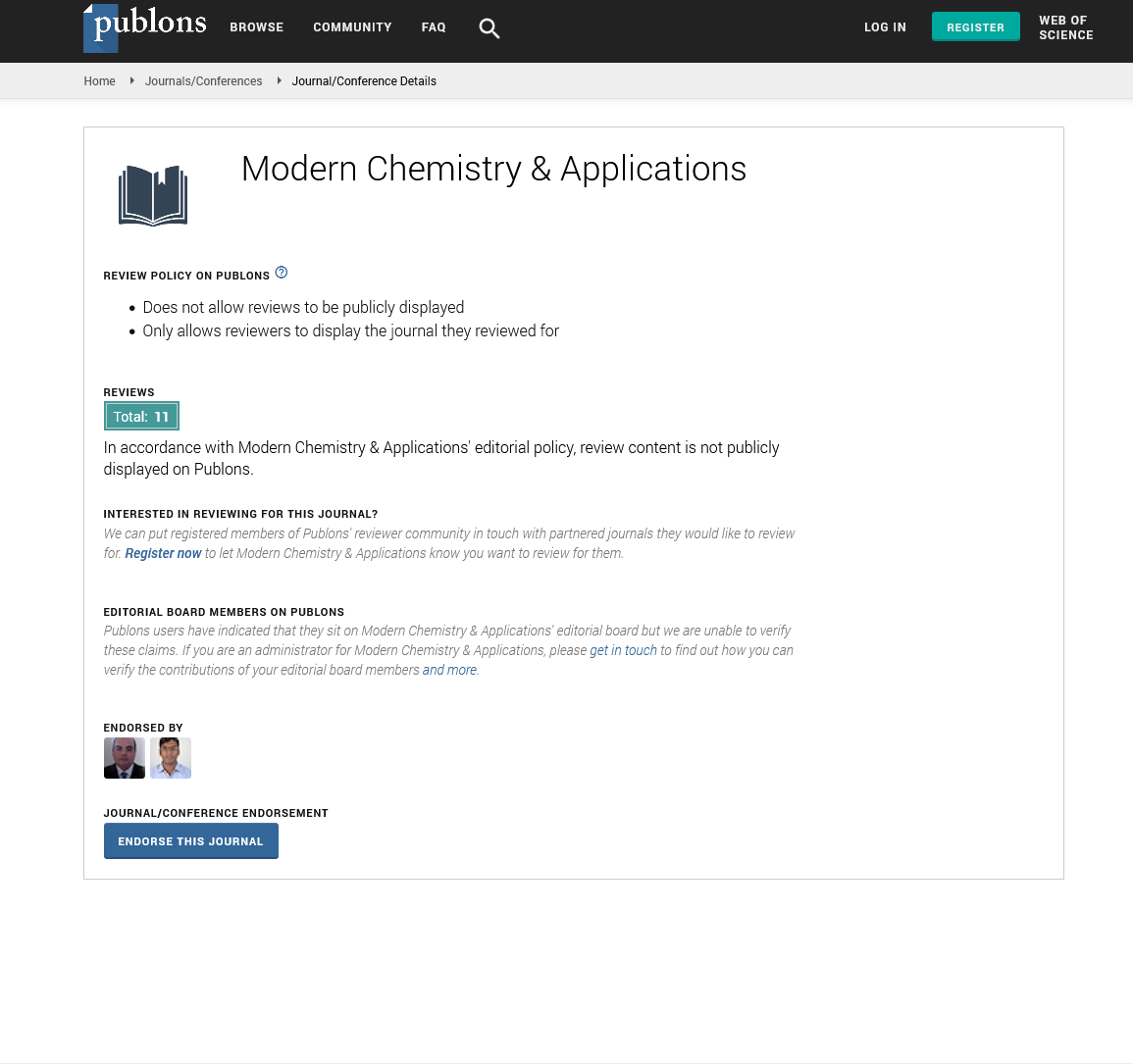Indexed In
- Open J Gate
- JournalTOCs
- RefSeek
- Hamdard University
- EBSCO A-Z
- OCLC- WorldCat
- Scholarsteer
- Publons
- Geneva Foundation for Medical Education and Research
- Google Scholar
Useful Links
Share This Page
Journal Flyer

Open Access Journals
- Agri and Aquaculture
- Biochemistry
- Bioinformatics & Systems Biology
- Business & Management
- Chemistry
- Clinical Sciences
- Engineering
- Food & Nutrition
- General Science
- Genetics & Molecular Biology
- Immunology & Microbiology
- Medical Sciences
- Neuroscience & Psychology
- Nursing & Health Care
- Pharmaceutical Sciences
Commentary - (2023) Volume 11, Issue 4
Flavonoids and Phenolic Compounds: A Delectable Defense against Disease
Willey John*Received: 24-Jul-2023, Manuscript No. MCA-23-22970; Editor assigned: 26-Jul-2023, Pre QC No. MCA-23-22970 (PQ); Reviewed: 14-Aug-2023, QC No. MCA-23-22970; Revised: 21-Aug-2023, Manuscript No. MCA-23-22970 (R); Published: 28-Aug-2023, DOI: 10.35248/2329-6798.23.11.431
Description
Antioxidants are natural compounds that play a vital role in protecting our cells from oxidative stress and the damaging effects of free radicals. Among these antioxidants, flavonoids and phenolic compounds have emerged as powerful defenders of our well-being.
Flavonoids and phenolic compounds: Nature's antioxidants
Flavonoids and phenolic compounds are secondary metabolites found abundantly in fruits, vegetables, tea, wine, and other plant-based foods. These compounds play essential roles in plants' defense mechanisms against environmental stressors, pathogens, and UV radiation. When humans consume these foods, they can benefit from the antioxidant and antiradical properties of these compounds.
Quercetin: Quercetin is one of the most well-known flavonoids, found in apples, onions, and leafy vegetables. It is recognized for its potent antioxidant properties, which help neutralize harmful free radicals in the body. Studies have suggested that quercetin may protect cells from oxidative damage, reduce inflammation, and even exhibit anticancer properties.
Resveratrol: Resveratrol, primarily found in red grapes and red wine, is another popular phenolic compound. It has gained fame for its potential to promote heart health and longevity. Resveratrol's antioxidant properties are believed to contribute to its cardio-protective effects by preventing the oxidation of Low- Density Lipoproteins (LDL) and reducing the risk of atherosclerosis.
Curcumin: Curcumin, the active compound in turmeric, is a phenolic compound with strong antioxidant and antiinflammatory properties. It has been extensively studied for its potential in managing various chronic diseases, including arthritis, Alzheimer's disease, and cancer. Curcumin's ability to scavenge free radicals and reduce oxidative stress is considered one of its key mechanisms of action.
Epigallocatechin Gallate (EGCG): EGCG is a catechin found abundantly in green tea. It is celebrated for its potent antioxidant and antiradical properties. EGCG has been linked to various health benefits, such as weight management, improved cardiovascular health, and reduced risk of certain cancers. Its ability to neutralize free radicals may play a significant role in these health-promoting effects.
Mechanisms of action
The antioxidant and antiradical properties of flavonoids and phenolic compounds can be attributed to their chemical structure, which allows them to scavenge and neutralize free radicals. Free radicals are unstable molecules with unpaired electrons, which can damage cells and DNA. Antioxidants, like the compounds mentioned above, donate electrons to stabilize free radicals, preventing them from causing harm.
In addition to their direct antioxidant effects, flavonoids and phenolic compounds can enhance the body's endogenous antioxidant defenses. For instance, they can upregulate the expression of antioxidant enzymes like Superoxide Dismutase (SOD) and Glutathione Peroxidase (GPx), further bolstering the body's ability to combat oxidative stress.
Health implications
The consumption of foods rich in flavonoids and phenolic compounds has been associated with a reduced risk of chronic diseases, including cardiovascular diseases, neurodegenerative disorders, and certain types of cancer. While these compounds are not a panacea, they can certainly contribute to overall health and well-being as part of a balanced diet.
It's important to note that individual responses to these compounds may vary, and their bioavailability can be influenced by factors such as gut microbiota and dietary habits. Therefore, a diverse and plant-rich diet is recommended to maximize the potential health benefits of flavonoids and phenolic compounds.
Flavonoids and phenolic compounds are natural antioxidants found in a wide range of plant-based foods. Their ability to combat oxidative stress and neutralize free radicals makes them valuable contributors to human health. While further research is needed to fully understand their mechanisms of action and optimize their benefits, it's clear that including foods rich in these compounds in your diet can be a delicious and health promoting choice. Whether it's enjoying a glass of red wine, savoring a cup of green tea, or adding turmeric to your dishes, these compounds offer a flavorful way to support your wellbeing.
Citation: John W (2023) Flavonoids and Phenolic Compounds: A Delectable Defense against Disease. Modern Chem Appl. 11:431.
Copyright: © 2023 John W. This is an open-access article distributed under the terms of the Creative Commons Attribution License, which permits unrestricted use, distribution, and reproduction in any medium, provided the original author and source are credited.


